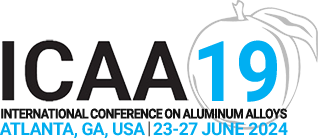 Charles “Chuck” Johnson
Charles “Chuck” Johnson
President and CEO Aluminum Association
Title: U.S. Aluminum in a Time of Transition
Date and Time: June 24, 8:00 – 8:45 AM
Brief Bio: As president and CEO of the Aluminum Association, Charles “Chuck” Johnson serves as the chief advocate for the full aluminum value chain in the United States, which supports hundreds of thousands of American workers. The association’s 120+ members make 70 percent of the aluminum and aluminum products shipped in North America. Prior to joining the association in 2022, Charles served as the President of the International Safety Equipment Association (ISEA), the trade organization for personal protective equipment and technologies. During his tenure, he modernized ISEA’s operations and spearheaded the passage of key liability legislation for safety equipment manufacturers. Notably, Charles led the ISEA as the industry was at the forefront of the COVID-19 pandemic response. He previously served as the vice president of policy for the Aluminum Association, acting as strategic advisor to the industry and advancing the aluminum industry’s interests in Washington D.C. and abroad. His responsibilities included federal affairs, environmental regulation, occupational health and safety, community and consumer protection, international regulation and sustainability. Charles has 18 years of aluminum industry experience, during which he represented the U.S. industry in international corporate stewardship deliberations, diverse standards setting forums and at the WHO/FAO. He holds a B.A. from the University of Mississippi and an M.A. in international environmental policy from The American University.
Abstract: Aluminum Association President & CEO Charles Johnson will discuss current trends in the domestic aluminum industry — from demand and jobs; to generational investment; to efforts to decarbonize aluminum production and recycling. Johnson will also discuss the policy environment in Washington and across the country and how these trends are shaping the future of aluminum.
 Christian Engel
Christian Engel
Senior Expert for Aluminum Technology, Airbus Inc.
Title: More than 100 years of aluminum in aeronautics – a never ending success story?
Date and Time: June 25, 8:00 – 8:45 AM
Brief Bio: Currently Christian Engel is a Senior Expert for Aluminum Technology; Materials, Process and Test at Airbus. He started 20 years ago in the Failure Analysis laboratory with a thermodynamics and material science background to investigate failure mechanisms of all materials used in Aircrafts. After some years he changed to the area of metallic material development and qualification with close cooperation to material suppliers and academia. Meanwhile he is also acting as advisor for aluminum alloys performance assessment and review, root cause analysis, material development and approval and their selection for aircraft programs.
Abstract: Since the usage for airships, aluminum has played a crucial role in shaping the trajectory of aerospace engineering, from the pioneering days of flight to the cutting-edge technologies of today. Over the decades, advancements in aluminum alloys and manufacturing techniques have continuously elevated the performance and efficiency of aerospace structures. Today’s observation in Aerospace is that the usage of composite materials is continuously increasing because of multiple reasons, just to name here, weight performance and corrosion benefits. This note will reflect on the present challenges and opportunities for any structural material that lie ahead, like sustainability, high-rate production, industrialization and supply chain, maintenance, repairability and its operational performance and predictability. As aerospace technology and the governing landscape evolves, the inquiry into whether aluminum’s legacy remains an unending success story becomes a pertinent question.
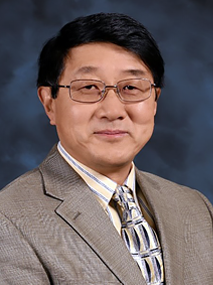 Prof. Alan Luo
Prof. Alan Luo
Professor of Materials Science and Engineering, Ohio State University
Title:Towards Aluminum Circularity and Manufacturing Sustainability for Automotive Applications.
Date and Time:June 25, 8:45 – 9:30 AM
Brief Bio: Alan Luo is Donald D. Glower Chair in Engineering, Professor of Materials Science and Engineering and Integrated Systems Engineering (Manufacturing) at The Ohio State University (OSU) in Columbus, OH, USA. Prof. Luo is leading Lightweight Materials and Manufacturing Research Laboratory (LMMRL) and is Director of the Advanced Casting Research Center (ACRC) at OSU. Alan is an elected member of the National Academy of Engineering (NAE), as well as a fellow of The Minerals, Metals & Materials Society (TMS), Society for Automotive Engineers (SAE), and American Society of Metals (ASM). Prior to joining OSU in 2013, Dr. Luo was a GM Technical Fellow at General Motors Global Research and Development Center (Warren, MI, USA) with 20 years of industrial experience.
Abstract: Aluminum offers a major lightweight solution to the automotive industry as it is transitioning from the traditional internal combustion engine (ICE) vehicles to alternative energy (battery electric, hybrid and fuel cell) vehicles. This transition provides a great opportunity for aluminum to achieve material circularity and manufacturing sustainability. However, primary production of aluminum is energy-intensive with extensive CO2 emission. Re-melting aluminum scrap only uses ~5% of the energy (and reduced emission) required to produce primary aluminum from ores. This presentation looks at effective utilization of the ever-expanding global aluminum scrap stream to develop value added alloys for automotive applications. We address the challenges of impurities in secondary aluminum from two different pathways: One is to remove the “bad actors” through liquid metallurgical processing methods, whereas the second approach is to mitigate the effect of the “bad actors” influencing the effects of microalloying and processing. For automotive design and manufacturing, the growing alternative energy vehicles tend to have more simplified body structures, enabling the use of large and consolidated castings which significantly reduce welding, joining and assembly. The development and evolution of energy-efficient large thin-wall die casting (also called mega/giga casting) will enhance the sustainability of automotive manufacturing.
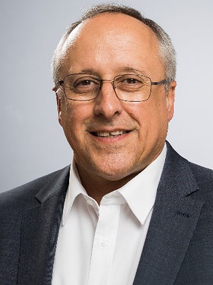 Philippe Meyer
Philippe Meyer
Sr. Vice President and CTO – Novelis Inc.
Title:Aluminum, the ever young and infinite material
Date and Time:June 25, Banquet Speaker
Brief Bio: Philippe Meyer is Senior Vice President and Chief Technology Officer of Novelis Inc. In this role, he is responsible for leading the company’s product Innovation Strategy and Research and Development across all regions and markets. He oversees Novelis’ global network of Research and Technology Centers as well as Customers Solution Centers throughout North and South America, Europe, and Asia. Novelis is the leading producer of Aluminum flat-rolled products and the world’s largest aluminum recycler, with the purpose to shape a sustainable world together. Located in 9 countries with 33 manufacturing sites, Novelis employs about 13 170 people, has an annual revenue of $ 18.5 billion and an annual EBITDA of $1.8 billion. (*) Philippe joined Novelis with the company’s acquisition of Aleris. During his seven years with Aleris, he was responsible for R&D, Process-Product-Technology, Quality, Laboratories, and Intellectual Property as Senior Vice President and Chief Technology Officer. Prior to joining Aleris, Philippe held R&D, Operations, and Technology roles at Pechiney, Forgeal, and Montupet. Throughout his 42 year career in the aluminum industry, he has served and goes on serving the automotive, aerospace, beverage packaging, specialty and industrial markets, innovating and developing solutions for and with customers. Among many career achievements, Philippe is one of the founders, and co-chairs the European Aluminium Innovation Hub, which aims at enhancing industrial cooperation towards circularity and a net zero CO2 footprint at the horizon of 2050 or earlier. He is also the sole inventor or co-inventor of over 50 patent families. (*) Note statistics from Fiscal Year 2023
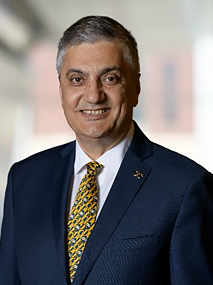 Prof. Chaouki T. Abdallah
Prof. Chaouki T. Abdallah
Executive Vice President for Research (EVPR) at Georgia Tech
Title:Where Science Meets Stewardship: Georgia Tech’s Innovation in Sustainability
Date and Time:June 25 Banquet Speaker
Brief Bio: Chaouki T. Abdallah was appointed the Executive Vice President for Research (EVPR) at the Georgia Institute of Technology (Georgia Tech) on September 1, 2018. Prior to that, he was a professor of Electrical and Computer Engineering (ECE) at the University of New Mexico (UNM) where he also served as the university’s 22nd president, as provost and executive vice president for academic affairs, as well as chair of the electrical and computer engineering (ECE) department. During his tenure, Abdallah oversaw long-range academic planning and efforts to improve student success, as well as retention-achievement and graduation achievement rates. At Georgia Tech, he serves on the President’s executive leadership team and provides overall leadership for the $1.45 billion annual research enterprise that includes the Georgia Tech Research Institute (GTRI), 10 interdisciplinary research institutes (IRIs), as well as economic development, and related support units within Georgia Tech. He is a member of the Association of American Universities Senior Research Officer (AAU SRO) Steering Committee, serves on the executive committee for the Government-University-Industry Research Roundtable (GUIRR), and the advisory committee for the Center on measuring university performance (MUP). He is also a member of the National Science, Technology, and Security Roundtable. He has published eight books (three as co-editor and five as co-author) and more than 300 peer-reviewed papers. Abdallah obtained his Bachelor’s of Engineering (BE) degree from Youngstown State University in 1981, and his MS and Ph.D. in Electrical Engineering from the Georgia Institute of Technology in 1982, and 1988 respectively. Abdallah conducts research and teaches courses in the general area of systems theory with focus on control, communications, and computing systems. Abdallah is a senior member of IEEE, is a recipient of the IEEE Millennium medal, and is fluent in English, French, and Arabic.
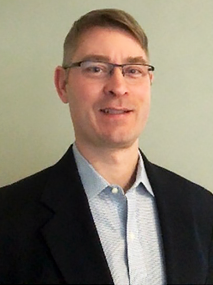 Doug McDougall
Doug McDougall
Vice President of The North America R&D Center – The Coca-Cola Company
Title:The Coca-Cola Company and a World Without Waste
Date and Time:June 26, 8:00 – 8:45 am
Brief Bio: Doug McDougall is the Vice President of The North America R&D Center at The Coca-Cola Company. He has spent over 26 years in Innovation and Operations for The Coca-Cola Company. He has a passion for bringing innovation to market and building high performing teams. Doug holds a BS in Mechanical Engineering from The Georgia Institute of Technology and a MBA from The University of Georgia. He lives in Decatur with his wife, Jessica, son Wade (15) and daughter Lila (12). When Doug is not working on new products, he’s cheering on the Yellow Jackets or trying to visit all the Major League baseball stadiums to cheer on the Atlanta Braves.
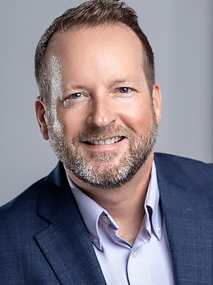 Ryan Duncan
Ryan Duncan
Senior Manager – Packaging Development & Innovation – The Coca-Cola Company
Title:The Coca-Cola Company and a World Without Waste
Date and Time:June 26, 8:00 – 8:45 am
Brief Bio: Ryan Duncan is a Senior Manager – Packaging Development with The Coca Cola Company’s Global Design & Innovation Group and has supported a wide array of packaging innovation and sustainability initiatives for various categories (Coffee, CSD, Glass, and Alcohol Ready to Drink) during his 5 years with the company. Ryan leads the Metal Packaging SME team and is focused on championing new innovation, maintaining Coca Cola’s World Without Waste commitment, and providing governance and supply chain support for metal packaging. Prior to joining Coca Cola, Ryan was a Technical Services Manager for Rossi Gearmotors for 10 years and started his career as a Package Development Engineer with Silgan Plastics.
Abstract: At The Coca-Cola Company we care about the environment and the natural resources we all share. Sustainability is at the heart of what we do. Our purpose – to refresh the world and make a difference – is what guides our actions. We recognize our responsibility to help solve the global packaging waste crisis. That’s why in 2018 we launched World Without Waste, an ambitious, sustainable packaging initiative that will help create a circular economy where the materials in our packaging can be used again and again. World Without Waste has signaled a renewed focus on our entire packaging lifecycle—from how bottles and cans are designed and produced to how they’re collected, recycled and repurposed. We developed three fundamental pillars to guide our World Without Waste initiative: design, collect and partner. Many packaging formats have a role to play in delivering our beverages, including glass, PET plastic, aluminum, refillable bottles and even virtually package-less solutions. We are working to make all our packaging more sustainable, including maximizing our use of renewable and recycled content while minimizing our use of virgin material. Our global goals in this pillar are to:
- Make 100% of our packaging recyclable by 2025
- Use at least 50% recycled material in packaging by 2030
- Use 3 million metric tons less virgin PET derived from fossil-based sources by 2025
- 25% of our beverages sold by volume in refillable/returnable glass or plastic bottles or in fountain dispensers with reusable packaging by 2030.
Aluminum represents approximately 26% of our portfolio globally and TCCC R&D organization will highlight how aluminum plays a critical role to achieve our World Without Waste commitments.
 Mark White
Mark White
Innovation Director, DSW Automotive Limited.
Title:Aluminum in Automotive – the efficient, affordable, sustainable alternative for future passenger transportation.
Date and Time:June 26, 8:45 – 9:30 AM
Brief Bio: Mark White is a Professor at Brunel University in the UK, he is the Chairman of the Industrial Advisory Board & works closely with the BCAST research centre at Brunel, focused on metallurgy & light metals. He is also the Technical Director of Alumobility, an NGO focused on delivering light weight studies for OEMs through the substitution of steel for aluminum to demonstrate weight saving potential for the same attribute performance & lower emissions. Mark is also the Innovation Director of DSW Automotive Ltd, a consultancy company advising OEMs, Tier 1s & Material Suppliers on Body In White (BIW) best practice & future trends. Mark previously worked for JLR for 30 years in Body Engineering, pioneering the JLR work on Aluminum Intensive Vehicles, working with Ford Research to deliver many of the leading AIVs in the last 2 decades.
Abstract: Steel sheet has dominated Body-in-White (BIW) applications in the automotive industry for the previous 100 years, but at the start of the 21st century aluminum intensive vehicles from Audi & Jaguar went into production, demonstrating the potential for vehicle light weighting with aluminum for improved performance & economy, whilst lowering vehicle emissions. In the last 20 years, aluminum has gone from low volumes on niche vehicles to now over 2 million Aluminum Intensive Vehicles being produced every year, but what about the future with Electrification, do we need light-weighting & how do we make the application of aluminum affordable & sustainable to make future passenger vehicles more efficient for OEMs & customers.
